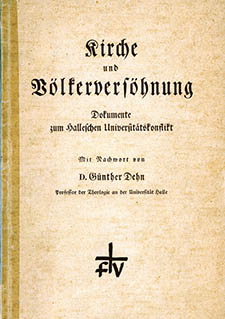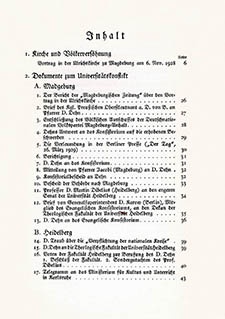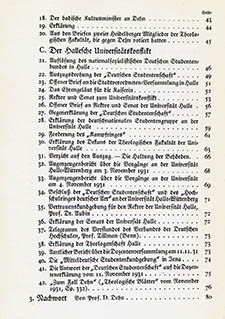The “Dehn Case”
Günther Dehn (1882–1970), a pastor in Berlin, delivered a lecture on the “Church and International Understanding” in Magdeburg on November 6, 1928, which was fraught with consequences. In it, he spoke out against the characterization of a soldier’s death as a Christian sacrificial death since soldiers themselves intended to kill.
He thus provoked widespread outrage inside and outside the church. His statements were interpreted to the effect that he saw soldiers as murderers and wanted to deny them Christian honors in the churches. In the end, the consistory in Berlin reprimanded Dehn on the grounds that his conduct had harmed the church’s general interests.
Dehn, thenceforth known throughout the nation as the “red pastor”, received an appointment to a chair of practical theology in Heidelberg in 1930. Fierce attacks and intrigues by the church and students prompted the school of theology to refuse to express its confidence in Dehn, whereupon he declined the professorship and accepted an appointment at the University of Halle.
However, the National Socialist German Students' Association there led a fierce campaign against him and his courses. The Prussian Ministry of Education resolved the conflict by granting Dehn leave for a sabbatical. In the postscript to his account of the conflict, Dehn wrote almost prophetically at the end of 1931:
What transpired in Heidelberg and Halle is perhaps merely a prelude to events to come where a state oriented purely toward power politics, which knows nothing about its accountability to God, will either demand complete obedience from the church or declare it subversive. It may be that the church of the present is standing at the threshold of the gravest conflicts with modern nationalism, in which its existence will be challenged. Should I give these coming clashes a gloomy portent by yielding like a coward and evading the onslaught in the interest of my own personal peace? This must be resisted. (89f.)
Hitler took power before Dehn’s sabbatical was even over and he was dismissed.
Source / title
- © Ev. Arbeitsgemeinschaft für Kirchliche Zeitgeschichte, München



